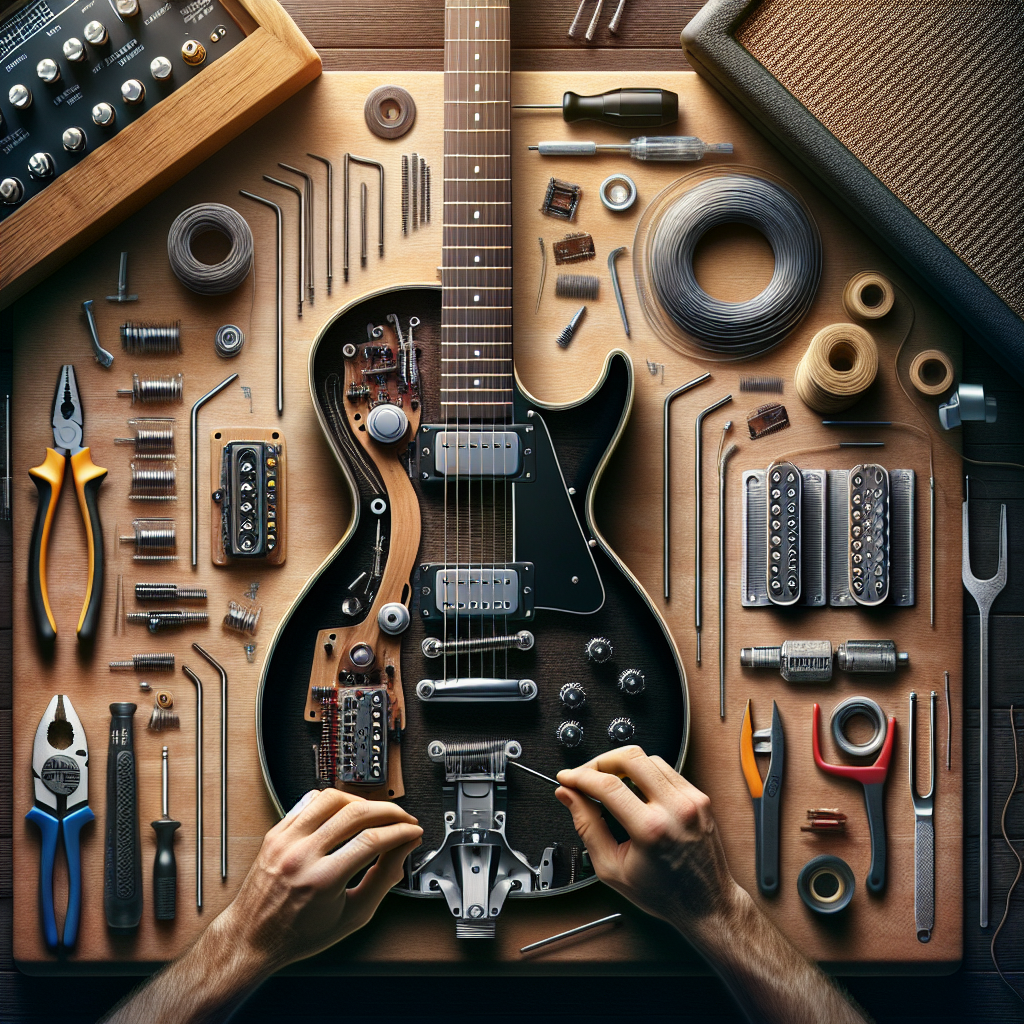
10 Powerful Ways to Upgrade a Beginner Guitar into a Pro Instrument
Every budding guitarist dreams of owning a professional instrument. However, acquiring one can be expensive and daunting, especially for those at the start of their musical journey. What if you could transform your current beginner guitar into a pro-level instrument without breaking the bank? This comprehensive guide outlines ten powerful ways to upgrade your guitar, which will significantly enhance your playing experience and sonic output.
1. Assess Your Guitar’s Condition
Before jumping into upgrades, it’s crucial to assess the current condition of your guitar. Check for any physical damages, loose fittings, or tuning issues. A guitar in poor condition might not benefit much from upgrades, necessitating repairs or even a replacement. Ensuring your instrument is in good shape will help your modifications truly shine.
2. Upgrade the Pickups
The pickups are the heart of an electric guitar’s tone. Beginner guitars often come with basic pickups that can sound flat or muddy. Consider upgrading to higher-quality pickups that match your desired sound. Whether it’s single-coil for that bright, crisp sound or humbuckers for a fuller tone, upgraded pickups can significantly alter your guitar’s voice (source: MusicRadar).
3. Replace the Nut and Saddle
The nut and saddle are often overlooked but are critical components in maintaining intonation and playability. Replacing plastic parts with materials like bone or synthetic substitutes can improve tone sustainability. A high-quality nut reduces friction and tuning instability, while a well-crafted saddle aids in better resonance.
4. Upgrade the Tuning Machines
Tuning stability is imperative for any guitarist. Beginner guitars frequently have subpar tuning machines that slip and cause frustration. Upgrading to locking tuners ensures that your guitar stays in tune longer and makes string changes faster and more efficient. This change is especially beneficial for those who frequently use alternate tunings.
5. Swap the Strings
String choice greatly influences a guitar’s tone and playability. While beginners often overlook this aspect, using high-quality strings tailored to your playing style can enhance your instrument’s sound. Consider experimenting with different gauges and materials to find the perfect match, providing you with a richer and more dynamic playing experience.
6. Improve the Electronics
Professional-grade guitars often come with advanced electronics. Upgrading the wiring, pots, and switch can reduce unwanted noise and improve overall tonal output. Look for a wiring kit that matches your instrument, ensuring smoother volume and tone control, which translates to a cleaner sound.
7. Modify the Action and Setup
A well-set-up guitar drastically improves playability. Adjust your guitar’s action (the distance between strings and fretboard) to suit your playing style—lower for easier playability and higher for a cleaner sound. Regular setups can prevent buzzing and ensure optimal performance.
8. Refine the Finish
The finish might not directly affect sound, but it can enhance your guitar’s aesthetics and prevent wear and tear. Consider refinishing with durable lacquers or paints that will protect the wood. A polished finish not only looks professional but can also affect instrument resonance to a slight degree.
9. Enhance the Hardware
Replacing hardware such as the bridge and tailpiece can influence your guitar’s performance. Opt for sturdier, higher-quality metals that enhance sustain and resonance. Brass and stainless steel options often improve sound quality, making your guitar more robust and reliable.
10. Personalize Your Guitar
Lastly, making personal modifications can connect you more deeply with your instrument. Whether it’s custom inlays, a unique pickguard, or personalized decals, these modifications make your guitar truly yours. Not only does personalization boost confidence, but it also ensures that your guitar reflects your personality and playing style.
FAQs
What is the most impactful upgrade for a beginner guitar?
Upgrading the pickups is often the most effective modification, as it directly affects the sound quality. A good set of pickups can make a world of difference in the tone and clarity of your guitar.
How difficult is it to install new pickups?
Replacing pickups can be moderately challenging, requiring soldering skills. If you’re inexperienced, consider having a professional do it or follow detailed tutorials online.
Do better strings really make a difference?
Yes, higher-quality strings greatly influence sound and playability. They tend to last longer, offer better tone, and can cater to specific playing styles. Experimenting with string types is well worth the effort.
How often should I set up my guitar?
Regular setups are important, ideally every six months. However, if you notice changes in playability, such as increased string buzz or tuning issues, it may be time for a setup.
Can polishing affect my guitar’s sound?
While primarily aesthetic, a good finish can slightly affect resonance. More importantly, it protects your guitar from wear and enhances its lifespan.
Is it worth investing in hardware upgrades?
Yes, quality hardware can significantly improve tuning stability, sustain, and reliability, making them wise investments for serious players.
By undertaking these upgrades, you can transform your beginner instrument into a pro-level guitar, offering enhanced sound and playability. Don’t forget to regularly care for your guitar, ensuring its longevity and consistent performance.